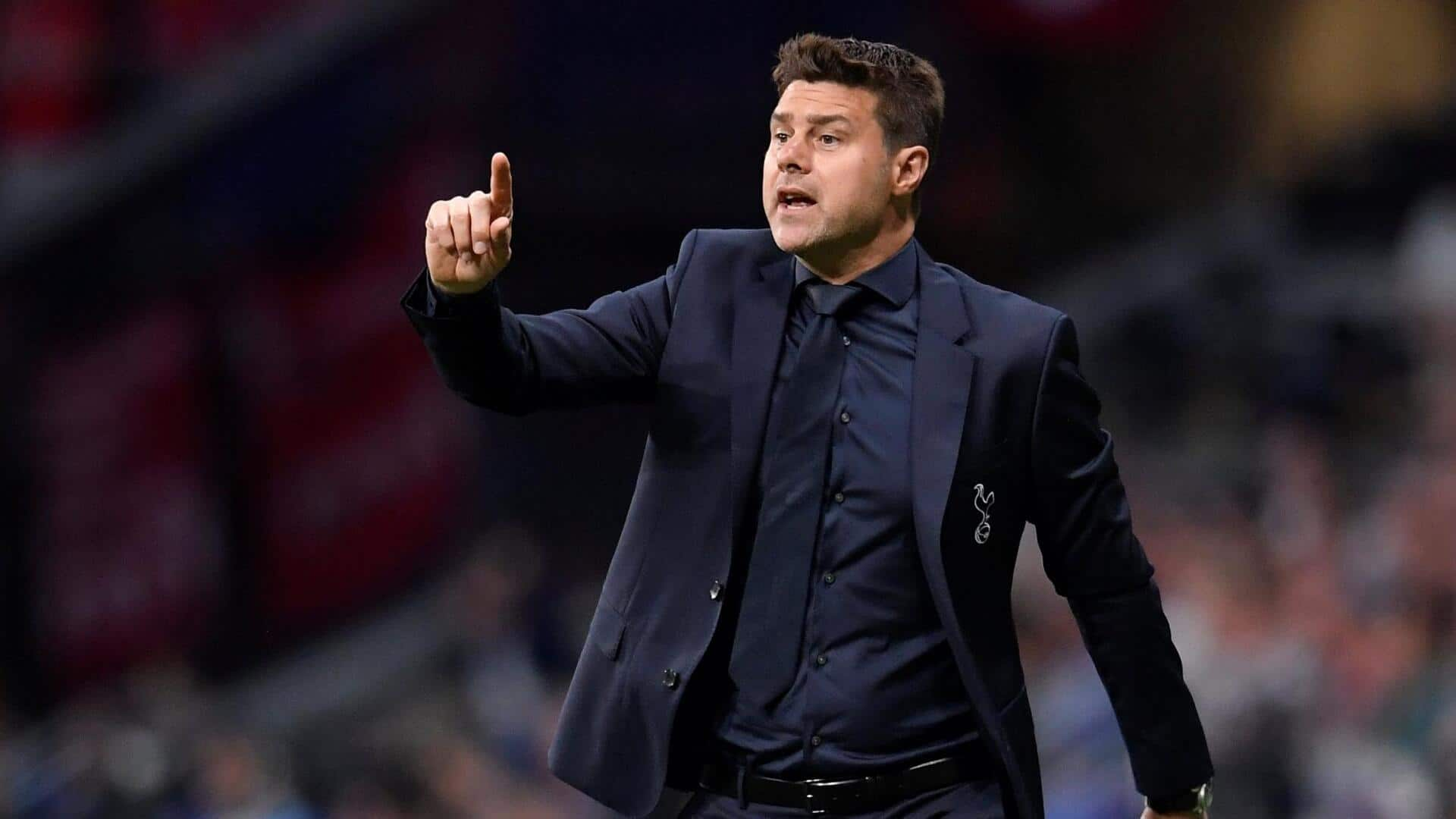
Mauricio Pochettino: Decoding his managerial stats at Tottenham Hotspur
What's the story
Mauricio Pochettino played a crucial role in developing Tottenham Hotspur as one of the best teams in the Premier League during his five years at the club. He was eventually sacked by Spurs in 2019. Pochettino visits his old club with his new side Chelsea in the Premier League on Monday. Here we decode his stats at Spurs.
Context
Why does this story matter?
Pochettino's arrival at Tottenham helped the club gain relevance once again as he guided them to four consecutive top-four finishes in the Premier League. Spurs under his tutelage finished second in the 2016-17 season in the Premier League, which is their best finish in the PL era. Pochettino managed Paris Saint-Germain after his stint with Spurs. He joined Chelsea this summer.
2014-15
Pochettino became Tottenham's 10th manager since 2001
Pochettino replaced Tim Sherwood at Tottenham in 2014. He guided Tottenham to fifth position in the 2014-15 PL season. Spurs won 19 matches while suffering 12 defeats and registering seven draws (64 points). They lost out in the round of 32 of the Europa League against Fiorentina. Their FA Cup journey ended in the second round while finishing as runners-up in the EFL Cup.
2015-16
Tottenham qualified for the Champions League in 2015-16
Pochettino in his second season helped the Lillywhites qualify for the UEFA Champions League after finishing third in the 2015-16 PL. They won 19 matches and registered 13 draws while suffering six defeats, amassing 70 points. Tottenham were beaten in the UEL R16 by Borussia Dortmund. They lost in the fifth round and the third round in the FA Cup and EFL Cup respectively.
2016-17
Tottenham's best Premier League season under Pochettino
Pochettino guided Tottenham to their best-ever finish in second place in the 2016-17 PL season. They won 26 matches, registered eight draws and suffered four defeats, clocking 86 points. Spurs crashed out of the UCL group stage before bowing out from the UEL round of 32. They lost in the fourth round of the EFL Cup and the semi-finals of the FA Cup.
2017-18
Tottenham finished third in the 2017-18 Premier League
Tottenham had another strong third-place finish in the 2017-18 Premier League. They won 23 matches registering 77 points while suffering seven defeats (eight draws). Spurs lost out in the FA Cup semi-finals and also bowed out in the fifth round of the EFL Cup. Tottenham topped the 2017-18 UCL group stage but exited in the round of 16 after losing to Juventus.
2018-19
First UEFA Champions League final for Tottenham
Tottenham finished fourth in the 2018-19 Premier League registering 71 points while amassing 23 wins. They also registered two draws and suffered 13 defeats. Pochettino guided them to their first-ever UCL final where they lost 2-0 to Liverpool. They bowed out of the FA Cup in the fourth round while exiting the EFL Cup in the semi-finals after losing against Chelsea on penalties.
Stats
Tottenham's most successful Premier League manager
Pochettino managed Tottenham Hotspur in 293 games, registering 159 wins, and 62 draws, besides suffering 72 defeats (win%: 54.27). He is fourth-placed (293) in the all-time list of managers to have managed the highest number of games at the club, only behind Bill Nicholson (832), Peter McWilliam (505), and Keith Burkinshaw (431). In 202 PL matches for Tottenham, Pochettino won 113 games (46 defeats).
Records
Pochettino broke many records at Tottenham
As per Squawka, Pochettino registered most wins by a Spurs manager in the post-war era (159). He guided Tottenham in four consecutive top-four finishes in PL. Pochettino became the first Tottenham manager to win 100 PL matches and became the third-fastest PL manager to reach this milestone with a single club in 169 games back then. He guided Tottenham to their first-ever UCL final.
Information
Four Premier League Manager of the Month awards
During his stint with Spurs, Pochettino won four Premier League Manager of the Month awards. He did so in October 2013, September 2015, February 2016, and April 2017.